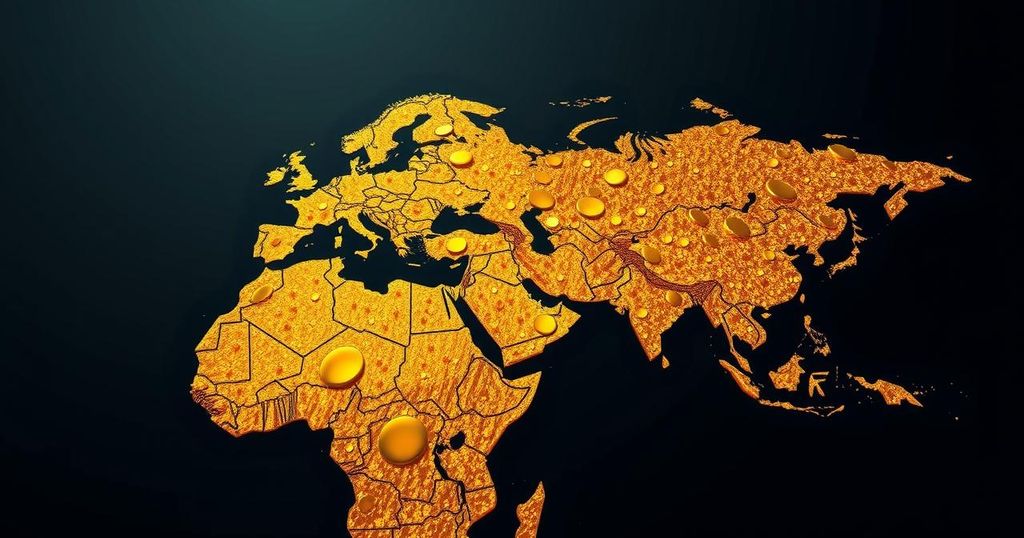A Boston University study recommends that the IMF sell 4% of its gold to provide debt relief for low-income countries affected by climate change. This sale could generate $9.52 billion to support 86 countries, particularly as the CCRT is limited to only 30 nations. The ongoing COP29 summit highlights the urgency of climate financing and the need for immediate action.
The International Monetary Fund (IMF) has been urged to liquidate 4% of its considerable gold reserves to provide debt relief for low-income nations severely impacted by climate change, as highlighted by a report from Boston University’s Global Development Centre. The ongoing COP29 summit emphasizes the need for climate financing, particularly as many vulnerable countries have turned to the IMF for assistance following significant events such as the Covid-19 pandemic, which has increased their repayment pressures. The proposed sale of 3.62 million ounces of gold, amounting to $9.52 billion at current prices, aims to enable the relief for 86 countries. With gold prices recently surpassing $2,600 per ounce, this action would help relieve financial burdens while replenishing the IMF’s Catastrophe Containment Relief Trust (CCRT), which is currently limited in scope and funding.
The International Monetary Fund, established in 1944, primarily operates to provide financial stability and assistance to member countries facing economic difficulties. The CCRT is a specialized facility designed to offer immediate debt relief to low-income nations affected by disasters, but it presently applies to only 30 countries and is hindered by its limited resources. The report from Boston University suggests that selling a small fraction of the IMF’s gold could yield significant funds to support a broader range of countries overwhelmed by climate-related crises, stressing the pressing need for a financial solution amidst the escalating climate challenges.
In summary, the proposal for the IMF to sell a portion of its gold reserves presents a viable solution for providing vital debt relief to low-income countries grappling with climate-induced hardships. The suggested sale could not only generate considerable funds but also help replenish the severely underfunded CCRT, facilitating broader access to much-needed assistance without conditional constraints that often accompany other IMF lending programs. Thus, prioritizing this initiative is essential for strengthening global financial resilience against climate challenges.
Original Source: www.mining.com






